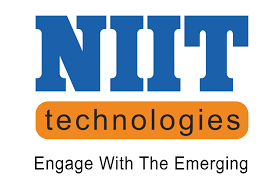In order to increase awareness and action around India’s protein deficiency, this Protein Week, the Right To Protein initiative released insights from a survey recently conducted with over 500 nutritionists and health experts based across India, who stated that the only way forward to protein sufficiency will be with active participation of various stakeholders to reverse India’s Protein Paradox. The survey was conducted in collaboration with India’s well-known health and nutrition forum, Nutrition Quest. The experts acknowledged the need for on-ground interventions to nudge a behavioral change in consumers to bridge the gap between knowledge and practice through informed perceptions and actions. With the goal of establishing a positive protein phenomenon in India, the Right to Protein initiative collated influential and professional voices of those who are championing the urgent need to make Indian households more protein conscious.
Outlining the various stakeholders within the nutrition ecosystem in India, the surveyed experts recommend:
• Increased government and industry focus on nutritional conversations and public awareness campaigns (53%), emphasis on protein consumption in nutritional supplementation schemes (38%) and introduction of policies for subsidies for quality protein-rich foods (21%)
• Strong focus on protein-fortified foods and animal feeds from protein producers, manufacturers, companies. This also includes efforts to increase affordability and accessibility of both plant and animal sources of protein and support for awareness initiatives
• Growth in nutrition knowledge led by nutritionists, dieticians and wellness experts (56%), with literature and research-backed information, thought leadership for constant education and communication and fact-checking to fight fake information
“The need of the hour is heightened awareness and education about the country’s protein consumption and a strong ecosystem to enable tangible behavior change,” said Madhuri Ruia, Nutrition & Fitness Expert, Supporter for the Right To Protein initiative and an alumnus of the American Academy Of Nutrition, who was among the experts interviewed in the study. “Changes need to be made across the spectrum, and as nutritionists, it is our prerogative to nudge the society in the right direction with constant education,” she added.
“There is an urgent need to create awareness on what to eat, how much to eat, importance of macronutrients and easily available sources of protein. There is a need to advocate for food frequency and food groups to understand dietary adequacy. There should be communication campaigns to provide the right information on right quality of protein for better muscle strength” said Dr. Shoba Suri, Ph. D Nutrition & Physiology and Senior Fellow at Observer Research Foundation (ORF), among other experts, who also asserted the collective need to tackle India’s protein challenge holistically – involving stakeholders within households, communities, the food industry and government at large. The focus, they said, should be to lay emphasis on the lack of protein and its awareness and not just the current emphasis on micronutrient malnutrition, to bridge the gap for good.
These recommendations were gathered by the Right To Protein initiative to supplement the findings of the nationwide study that uncovered this paradox in India’s daily protein consumption habits. The Protein Paradox study, conducted by Right To Protein with commissioned research agency Nielsen and published earlier this month, revealed a worrying trend where due to a poor understanding of protein as a macronutrient, Indians consume inadequate levels of proteins. Among 2,142 mothers surveyed in 2020 across 16 cities in India, although 95% acknowledged protein as a macronutrient, only 3% really understood the prominent functions of protein or why one should consume it daily. Majority of the mothers (91%) were also not able to relate to protein with its crucial functions such as repair of tissues in the body, muscle health and long-term immunity.
This study surveyed 541 industry experts, comprising of nutritionists, wellness experts, dietitians and medical specialists residing across India and connected through the network of the Nutrition Quest forum. The survey was conducted using a structured online questionnaire which included a mix of open-ended, close ended, matrix and ranking questions.




